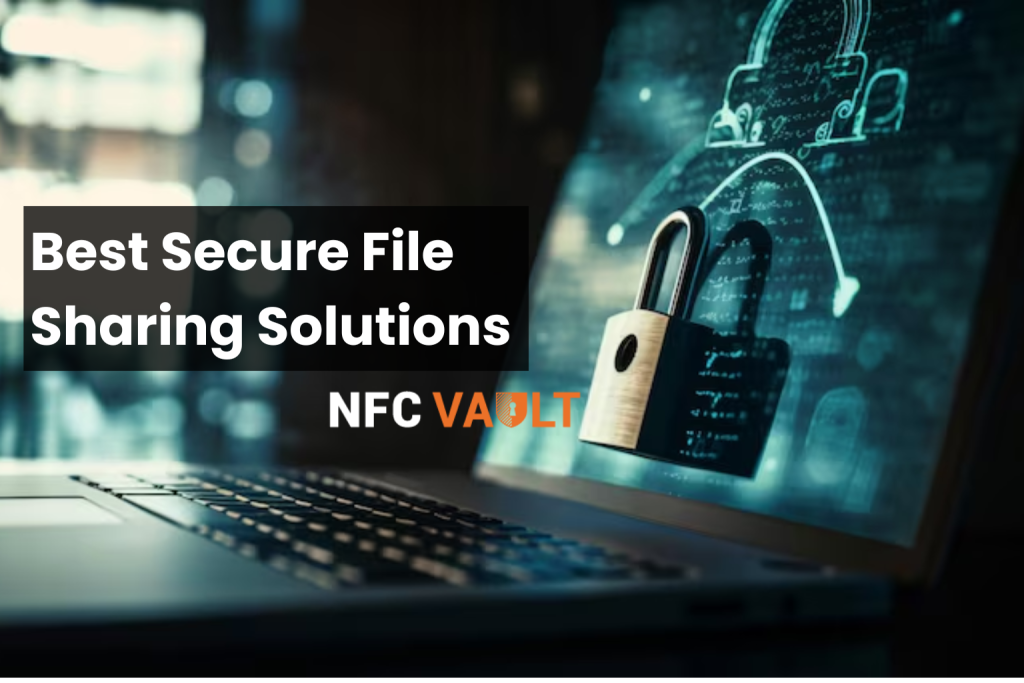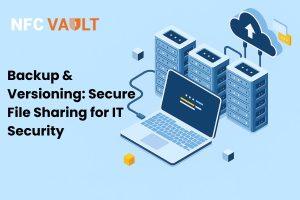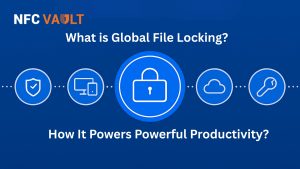2025 has become the most challenging year for businesses. Today, in every industry, be it BFSI, healthcare, public administration, law firms, or engineering, everyone’s dependence on digital data has increased. Millions of files containing highly sensitive information are shared every day: patient medical records, client financial data, CAD drawings from engineering firms, confidential government project reports. All this data forms the backbone of the company, and if leaked or compromised, not only do financial losses occur, but brand trust can also be completely lost. This is why secure file sharing is no longer an “optional IT tool” for every company, but has become a business survival strategy.
ez
The Need for Secure File Sharing
For today’s businesses, file sharing isn’t just a convenience. It’s directly linked to productivity, collaboration, and compliance requirements. When a company chooses which platform to move file sharing and storage to, one aspect becomes crucial: security and compliance.
Standard consumer cloud tools like Google Drive or Dropbox are fine for home users, but they’re not suitable for businesses. They lack Active Directory integration, multi-factor authentication, file versioning and backup, and compliance reporting. Another problem is that enterprise-level features like ransomware protection and global file blocking aren’t available in basic tools. Therefore, if a company needs to keep its data compliant with regulations and technically secure, it needs an enterprise file sharing solution specifically designed for its scalability and complexity.
The Failure of Traditional File Sharing Methods
Many organizations still rely on legacy models like Windows File Servers, FTP servers, and email attachments. But these systems have failed in the modern corporate world. The first reason is the compliance gap. International regulations like GDPR and HIPAA clearly require that all data transfers be encrypted and that an adequate audit trail be maintained. Legacy systems fail to meet both of these requirements.
The second major risk is ransomware attacks. Windows file servers and simple Internet file servers have become favorite targets for hackers. Once an attacker injects ransomware, the entire company’s files are encrypted, making it difficult to recover them without paying the ransom. Traditional systems lack a robust ransomware protection mechanism.
Third, these legacy servers rely heavily on VPNs. Remote employees must connect through a slow and vulnerable tunnel. This slows productivity on the one hand and creates a new entry point for hackers on the other. Today, with remote and hybrid workforces becoming the norm, VPN dependency has become a major bottleneck. Finally, these systems were not designed for multi-site collaboration. When an engineering or architecture firm works on a single CAD file across multiple locations, without Global File Lock, the file is overwritten. The result is a loss of productivity and data inconsistency.
What defines the best secure file sharing solutions?
Now the question arises: if traditional systems fail, what defines a modern secure file sharing solution? The first and most important pillar is encryption. Every file must be protected both at rest and in transit using standards such as AES-256 and TLS 1.3.
The second is identity and access management. Today’s businesses manage multiple locations and thousands of employees. Therefore, they need Active Directory integration, single sign-on (SSO), and multi-factor authentication to ensure centralized and secure login.
The third pillar is collaboration tools within the company. Simply sharing files is not enough; you need a system where employees work in a familiar environment. This is where tools such as drive mapping and local caching come into play. Drive mapping gives employees the same experience as a Windows file server, but with the benefits of the cloud. Local caching allows employees to access their files even when offline, and changes are securely synced as soon as the internet connection is restored. The fourth requirement is compliance. A platform that supports both secure HIPAA-compliant file sharing and GDPR-compliant file transfer will remain relevant for enterprises in the future. Finally, the optimal solution is scalable and future-ready, meaning it can easily support NTFS migration from legacy servers, implement a zero-trust architecture, and provide AI-powered anomaly detection.
NFC Vault: The Ultimate Secure File Sharing Service for Businesses
NFC Vault is a comprehensive data management platform designed specifically for enterprises and large organizations. It’s not just a storage system, but an enterprise-class solution that delivers security, compliance, and performance all in one.
The biggest advantage is that businesses can easily replace or upgrade their old Windows file servers using NFC Vault. The NTFS migration feature ensures that folder structures, user roles, and permissions are fully preserved during the migration, meaning the upgrade is seamless and business-friendly.
Security and Compliance
The major strength of the enterprise security model offered by NFC Vault is that it offers one of the highest levels of security. Files are end-to-end encrypted, meeting everything under compliance with GDPR and HIPAA. The healthcare sector benefits from sharing files in an HIPAA-compliant manner, ensuring security for both doctors and patients, while the financial institutions are presented with GDPR-compliant transfers, complete with extensive audit logs.
Enterprise-grade Active Directory integration allows one to centralize access control enforcement. Thus, roles, permissions, and quotas must be assigned from one single location for every user by IT administrators. NFC Vault can also be made a bit more secure with multi factor authentication to prevent unauthorized access.
Productivity Features
Beyond security, NFC Vault offers employees a familiar and efficient environment. The drive mapping feature allows users to access their cloud storage as a mapped drive, just like a local file sharing server. This simplifies adoption, as employees don’t have to learn new tools.
Local caching is another revolutionary feature. This is a great benefit for employees who work in remote areas or travel. If a technician or salesperson is offline, they can access and edit cached files. As soon as they connect to the internet, the files are automatically synchronized with the corporate repository.
Ransomware Protection
The greatest cyber threat of the modern era is ransomware. NFC Vault addresses this risk with ransomware protection features such as immutable backups and instant recovery. This means that even if an attacker injects ransomware into the system, the company can easily restore its files to the previous, safe version. This versioning and file backup mechanism keeps NFC Vault ahead of its competitors.
Access files without a VPN
The main benefit for remote workers is that NFC Wallet offers access to secure files without a VPN. This means that employees can enjoy a secure experience on an Internet file server, where they can quickly and securely access their files in the office, at home, or on the go. This increases productivity and reduces the burden on IT teams, as managing VPN tunnels is a complex and risky process.
Real-world enterprise use cases
BFSI companies use NFC Vault to securely share their customer data. For them, GDPR-compliant file transfers and audit trails are paramount. Healthcare organizations adopt it to securely transmit patient records and lab results via HIPAA-compliant secure file sharing.
Government and legal companies love it because Active Directory integration and audit logs give them transparency and accountability. For engineering and CAD firms, global file locking and VPN-free file access make multi-office collaboration easy. And global enterprises choose it because it is a scalable platform that modernizes traditional Windows file servers and enables secure global collaboration.
Why businesses choose NFC Vault
Competitors like Dropbox, SharePoint, and File Cloud are all useful, but the reason to choose NFC Vault is simple: it’s a single platform that combines all the features. Businesses don’t need to integrate different tools; they get a single platform that combines secure file sharing solutions, enterprise file sharing solutions, compliance-focused design, ransomware recovery, and familiar Windows-like usability.
The Future of Secure File Sharing
In the future, even greater emphasis will be placed on Zero Trust security, where no user is trusted by default. Furthermore, AI-based anomaly detection will become the standard for detecting unusual file activity and alerting the company. Global regulations will become even more stringent, and companies will need to adopt even more compliance-focused cloud storage solutions.
NFC Vault is already at the forefront of this journey. It is the best secure file sharing service for businesses, designed not only for today, but also for the future.
Conclusion
Secure file sharing is no longer an option: it’s essential infrastructure for every business. Traditional Windows file servers and insecure methods are now obsolete and risky.
NFC Vault is a comprehensive solution that offers security, compliance, and productivity on a single data management platform. Whether it’s GDPR-compliant file transfers, support for HIPAA-compliant secure file sharing, or VPN-free file access for remote workers, NFC Vault has it all.
Features such as drive mapping, local caching, global file locking, file versioning and backup, and ransomware protection make it completely enterprise-ready. And there’s no migration stress, as the platform supports direct NTFS migration from legacy Windows file servers.



